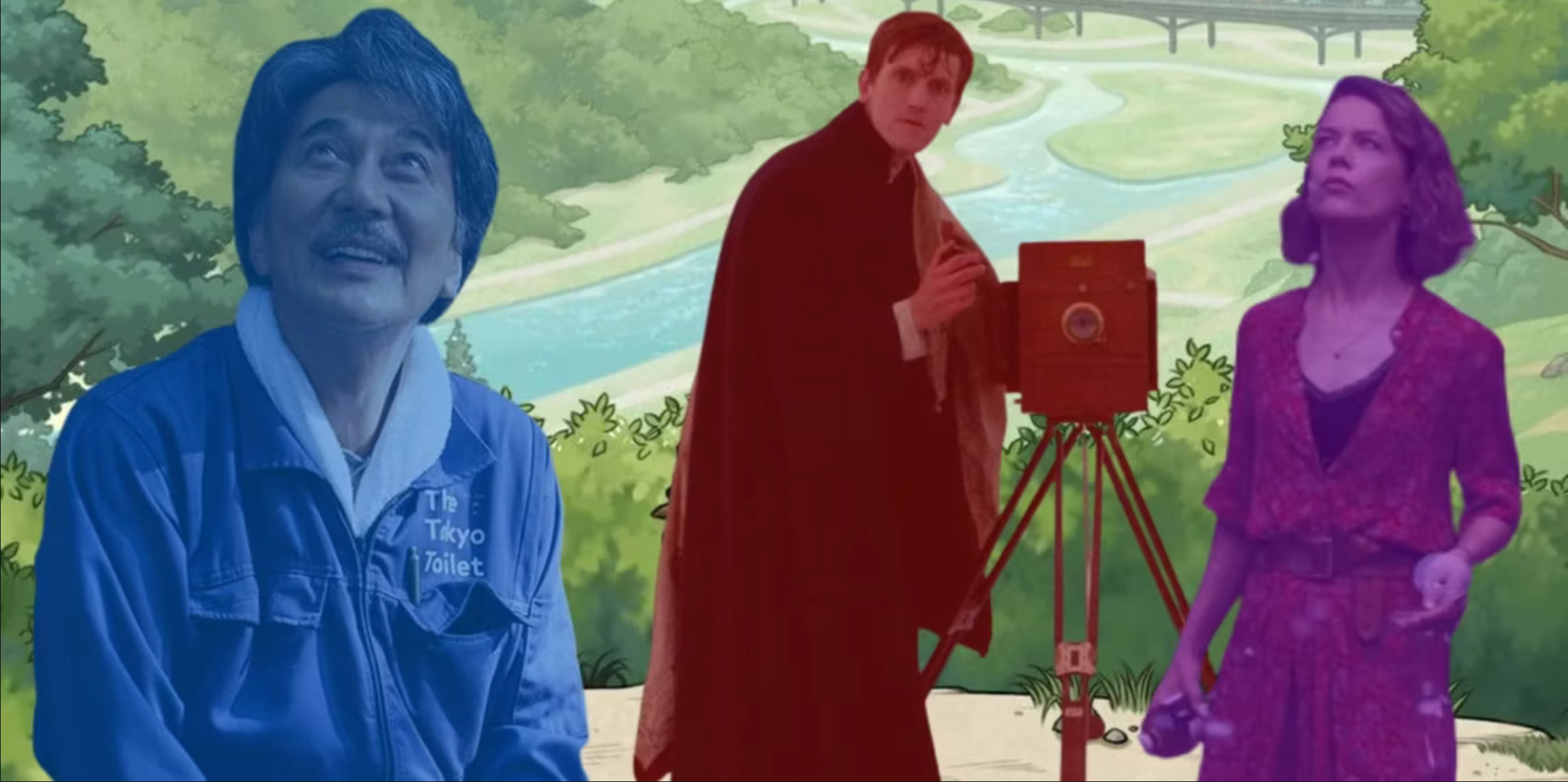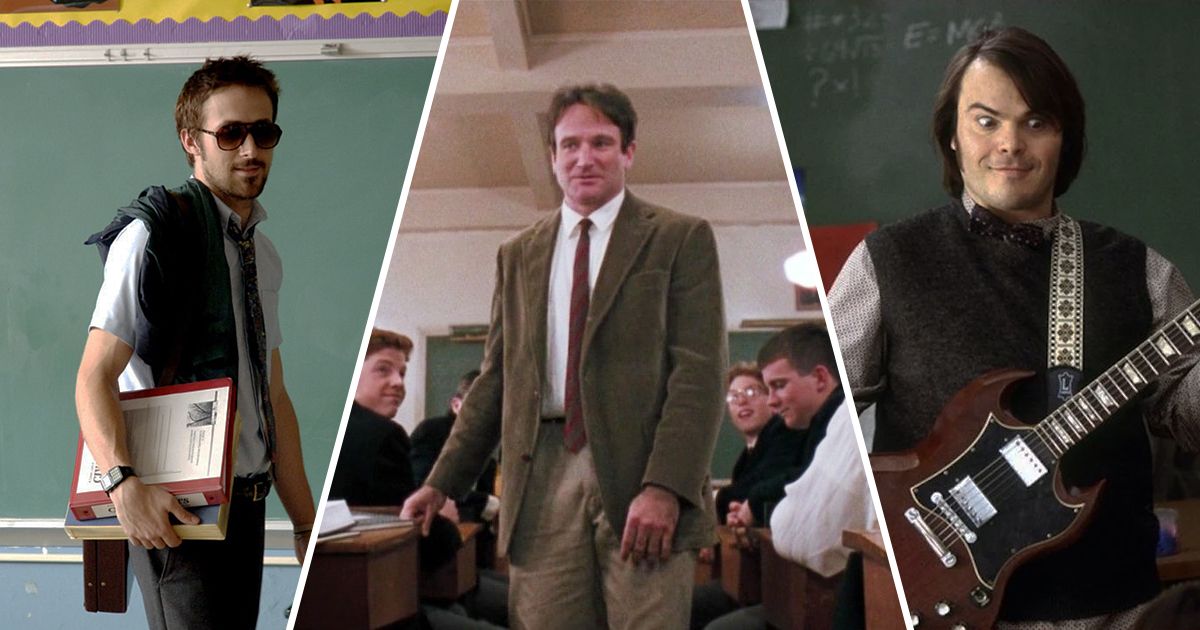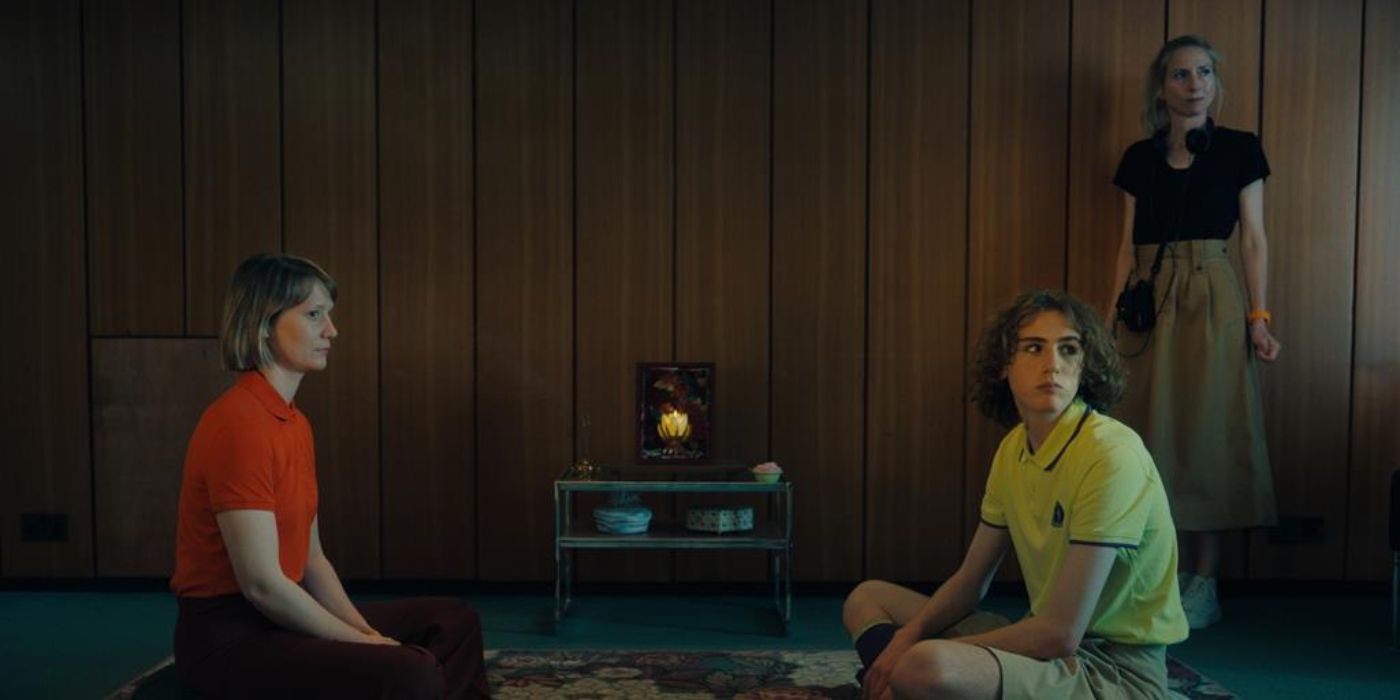Club Zero is the new film from Austrian auteur Jessica Hausner, who has always had a wry sense of humor that exposes hypocrisy and penetrates social customs. She’s always been resistant to labels, often making films about seductive ideas and how they infect people, especially alienated ones; this is usually tragic (Little Joe, Hotel, even Lovely Rita) but can also be beautiful (Lourdes). So you could call Club Zero a comedy or very dark satire, but you’re likely to be just as unsettled as you are amused.
The film follows a posh modern school that invites a new age teacher, Ms. Novak (played with chipper strangeness by Mia Wasikowska), to conduct a class on ‘conscious eating.’ What begins as an understandable study in wellness, mindfulness, and environmentalism slowly becomes a radical cult devoted to anorexia, a kind of silent hunger strike against the prevailing social order. It’s a film which presents conflicting ideas without judging or moralizing about them, so when we spoke with director Jessica Hausner, we danced around ‘meaning’ and ‘messages’ to explore the themes and aesthetics of this strange little masterpiece.
‘The Story Is Not Only the Story’
Club Zero
- Release Date
- March 15, 2024
- Runtime
- 110 Minutes
- Distributor(s)
- Film Movement
There has been a quietly fantastical element in several Hausner films, but her recent turn to English-language films embraces this even more. Little Joe, starring Emily Beecham and Ben Whishaw, followed a botanist whose project to create mood-enhancing plants instead results in mind-controlling ones. Club Zero, for its part, was birthed from an interest in the Pied Piper of Hamelin tale.
“I do think what changed a little bit since Little Joe is the aesthetics,” said Hausner. “I have always made films that had a very specific eye on aesthetics and visuality. But since Little Joe, I think the setting became a bit more fantastic. It’s more heightened realism now. Also, the costume design and the colors and the decoration — everything has become a little bit more artificial.” She elaborated:
“And I think the reason for that is that the way I make films goes very much into a direction of also telling fairy tales.
I do get a lot of
inspiration from fairy tales
, and I think it is always interesting for me to connect a very old sort of story with a nowadays aspect of it. I think that creates a very deep impact of what is being told. And the aesthetics then show us, ‘Okay, this is not only the real reality, but this is also a heightened reality.’
This helps, I think, the audience to understand that the story is not only the story, but it’s also a parable.
It’s also a myth or something that is a very general way of storytelling.”
2:36

The 30 Best International Movies of 2023, Ranked
From drama to comedy and everything in between, the world of ‘foreign film’ has produced the most amazing movies of 2023.
A modern-day Pied Piper makes for a perfect allegory, what with politicians, teachers, children, and parents all consumed in a cultural and political battle over what should be taught in the classroom. Ms. Novak could be seen as the Pied Piper figure that many parents are concerned about, leading to book banning, the firing of teachers, and legislation about school curriculums. But Hausner delves deeper into the social contract of education itself:
I think that is also a core part of the whole storytelling, that triangle between parents and teachers and the children. It’s a triangle of dependency, and in our societies, the parents work all day long, so they cannot take care of their children. They depend on the teachers or on the caregivers. And at the same time, our children are the most valuable things in our lives.
“And it’s very hard to hand over a child to someone who you hardly know, but that’s our system. That’s what we all agreed on. This is how we do it,” continued Hausner. “So I do like to reflect on that. What does it say about us? Why do we value our work and earning money more than the caregiving of our children? This is in the film. It’s not an issue that is sort of very morally treated, not at all. But I think it lies underneath, there is an underneath question mark sort of guilt that the parents feel in the end, because they ask themselves if they missed something.”
For Jessica Hausner, Providing Answers Is a ‘Betrayal’
When Jessica Hausner asks, “What does it say about us?” she does so without a predetermined answer. She is one of the most non-judgmental directors out there and, as such, one who respects the audience enough to not spoon-feed a simple message. Unfortunately, that can be frustrating for a lot of viewers who feel uncomfortable sitting in cognitive dissonance, being presented with different ideological forces without being told what to believe, who is right, and how they can go about the rest of their day without thinking hard about these things.
“I don’t think it’s frustrating. For me personally, it’s frustrating to be offered a simple answer knowing that it’s not true. Personally, as an audience, I prefer to sort of be shown and be presented with what life is like,” said Hausner. “I prefer to reflect and to observe, because then I feel that as a human being there is something that inspires me out of a film.” She added:
If the answers are given too easily, then I think it’s a betrayal. I personally don’t like that, because no one has the answers. Who am I to say this is the solution? I would already be the boss of Austria! I don’t know. So who provides that system, that is good for everyone? I mean, this is really what we’re all working on right now.
“Also concerning climate change, of course, concerning the equality between men and women, concerning all political questions,” continued Hausner. “People are constantly trying to find the solutions. I think in this film, I wanted to especially put the focus on the fact that, for now, we are valuing money and work much more than caregiving for children. And this is a big question mark. I think this is something we have to question ourselves, if that is the right distribution of values.”
Club Zero’s Trigger Warning for Ideologies
Club Zero has some disturbing scenes (you may wince or shut your eyes completely during one disgusting moment that’s nonetheless potent), but it’s far less visually horrific than most of the media we’re used to these days. Nonetheless, it contains a trigger warning at the beginning, which is ostensibly for people with eating disorders or anyone who is triggered by the subject.
“It was a way to make sure that the film does not harm anyone’s feelings. But this is not something that I personally am very firm with,” said Hausner. “I mean, I have the feeling that there has been a lot of discussion about this trigger warning. And I think that, let’s put it away. It’s not… I don’t know why people talk about it. I’ve seen many trigger warnings or no trigger warnings. Everyone does what they think is better. I wouldn’t sit on that too much. I think you can also delete it or leave it, I don’t know. It really depends on the rules also of a certain society.”
But apart from that, the question about eating disorders, of course, is touched upon in the story, and it is something that can be harmful also to be reminded of. And that’s why in the end, I agreed to have the trigger warnings. So it’s nothing more than that.
If anything, Club Zero should have an ideological trigger warning, cautioning people that their beliefs and opinions may be challenged and that they will be confronted with deconstructed ideology and not given any reconstructed answers. The film marinades in many provocative and subtle ideas about bodily autonomy, children, freedom, and education in the Anthropocene.
“What fascinated me really was to understand that we all are bound to some sort of ideology,” began Hausner. “So, all my films talk about certain ideas in our heads, and my friends also talk about the fact that within our society, we all have ideologies, and every one of us is part of a certain group of believers.” She went on:
“And even if we’re not conscious about it, that’s how it is, and especially in a time where there are so [many] different truths being promoted through all the internet and social media and whatever channels. So every one of us is a newspaper editor in a way, because we spread our opinion throughout the world, and we find friends within that same opinion or opponents who hate what we say. So it is a time of very active and very diverse truths and believers. This is what interested me, and no one is without ideology, never has been, but it has become very clear now that is the case, because suddenly there are so many different groups.”
“And about the body,” continued Hausner. “I think our body is a very interesting battlefield in order to live out your ideologies, and in Club Zero, I chose on purpose something that harms the body of the members of Club Zero because I wanted to show this is how far we go. It’s not only chatting about our ideas, we actually are ready to harm other people and ourselves to defend our ideology. And this is what is really frightening and astonishing, but that’s how it is. I think, if you believe something, this is how far you go. It is then your truth.
On Mia Wasikowska and Acting Polite
The acting in Club Zero is very Brechtian and resists emotionalization and too much attachment; creating this distance helps Hausner present her themes and expose different ideologies. But it goes beyond that, as well. Hausner broke down how she directed her cast here:
“Well, the way I talk to actors is always very much about finding a certain tone.
I often use the word politeness
, because it’s easier for actors who don’t know me, and if it’s the first time we work together, I need to establish a certain mutual understanding. And to explain what I want is sometimes easy if I talk about politeness, because every one of us knows, we’re always, most of the time, trying to be polite, especially if we are in a public situation, and also if we don’t know someone very well. So, being polite is already a sort of behavior that follows certain rules of society.”
“And going from there, it is interesting for me to describe that very many behaviors that we have are trying to obey certain rules of our society,” continued Hausner. “So what I try to create with my actors is not, ‘What is your true feeling?’ but, ‘How do you hide it? How do you hide what you really think or feel?’ And we all do that constantly. And I prefer to create those scenes and those tones where we feel that someone is just being polite. But this is how it is. This is very sad and frustrating, but that’s normally the case.”

The Best Movies About Teachers, Ranked
Audiences have been inspired, uplifted, and enthralled by some powerful cinematic depictions of teachers and their influence, and these are the best.
Club Zero was the first film for several of these actors, but star Mia Wasikowska is an acclaimed artist who has worked with some of the greatest directors (Jim Jarmusch, Park Chan-Wook, Guillermo del Toro, Lisa Cholodenko, Tim Burton, David Cronenberg, Mia Hansen-Løve). She was very collaborative with Hausner about creating Ms. Novak and her headspace.
“At first, when we met on Zoom, we had a long conversation about the script. And it was very interesting, talking to Mia Wasikowska,” began Hausner. “I understand that she also writes and wants to direct, so I think our conversation was on a very interesting intellectual level, also talking about seduction and radicalization.” She went on:
“And then, when we decided how to create Miss Novak, we also talked to some former cult members. So we met some people who had been part of a cult, and we asked them about the mechanisms of them being seduced to become part of [them], and we asked them also about their cult leaders, what psychology they had, what was the aim behind them manipulating other people, or did they really believe what they said to everyone?”
“And that was then finally sort of our entrance to the story to create a Miss Novak who is not a psychopath, or she’s not an evil bad guy,” continued Hausner. “She is really a believer. So she’s more of a saint. She truly believes that what she tells the children is true. And I think we understood very well, and I think she perfectly performed it like that, because that makes it hard to judge her. How can you judge someone for trying to do good even though it is bad?“
“So this strange thing, it’s
a question of perspective
, and if you are with no badness, and you think you’re a good person, and you’re in the skin of the parents, you think she’s the devil. This is something that interested me a lot,
because that’s what the film is about, that crazy crash of opinions
. And the more your belief is different from what the other person believes, the more the crash, in a way. This is what I wanted to show.”
“And the film has a certain distance to what is being told,” concluded Hausner. “It leaves it to the audience to judge, and not because I’m lazy, but because this is how I experience what is going on. If someone tells me something crazy that he or she believes in, I will never be able to, by discussing it, change the other person’s mind. I think that’s something we all understand by now, that a belief is something incredibly strong. It’s very hard to change someone’s mind.”
And that’s what makes Club Zero all the more remarkable — it has the potential to reveal audiences’ own ideology to themselves, showing them their own blind spots without forcing them to believe anything. Lay it all out. Film Movement released Club Zero in theaters on March 15, 2024. Find showtimes and information here.





